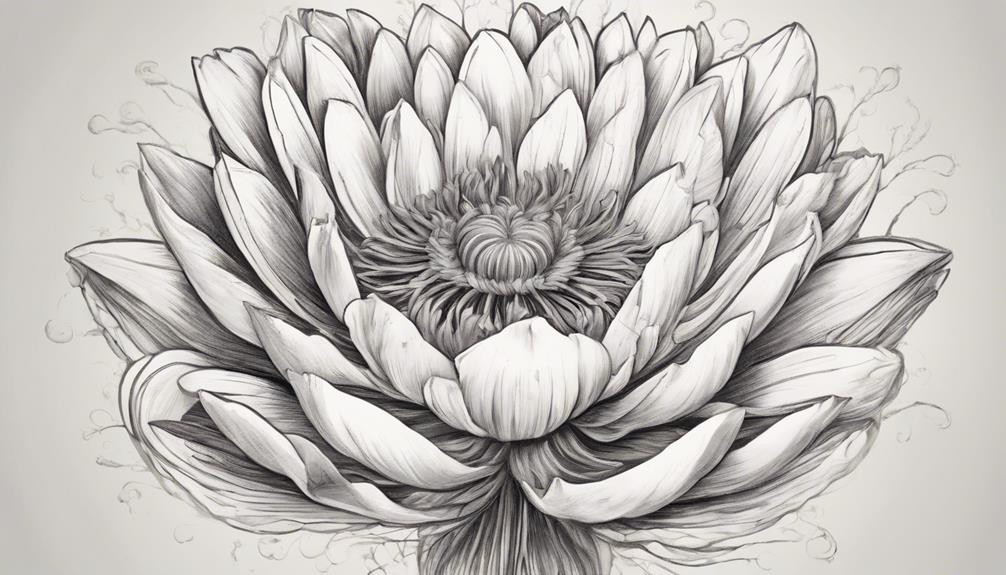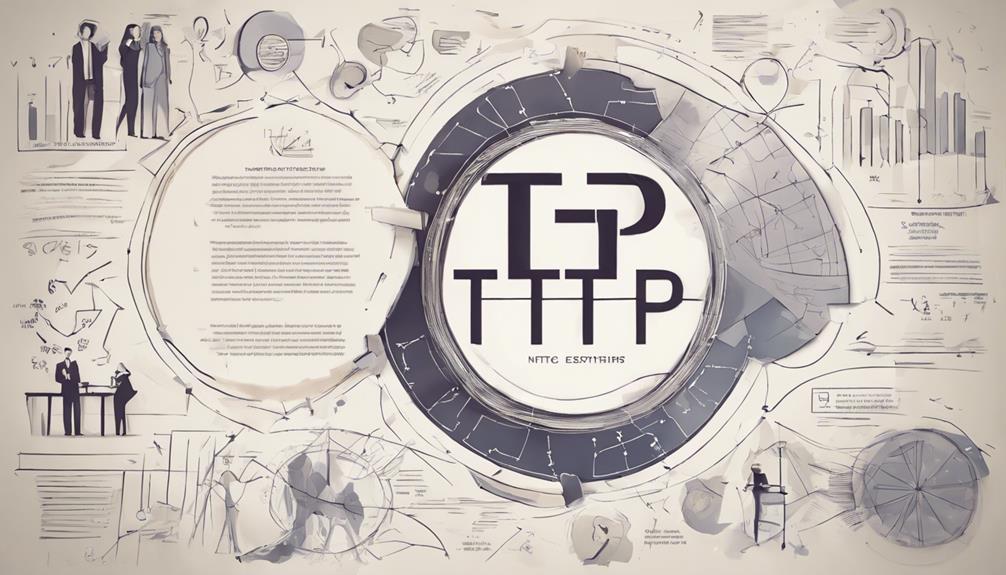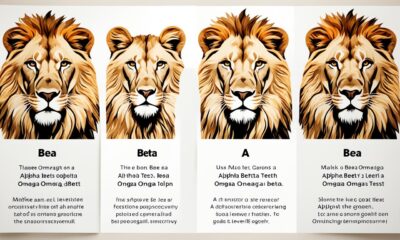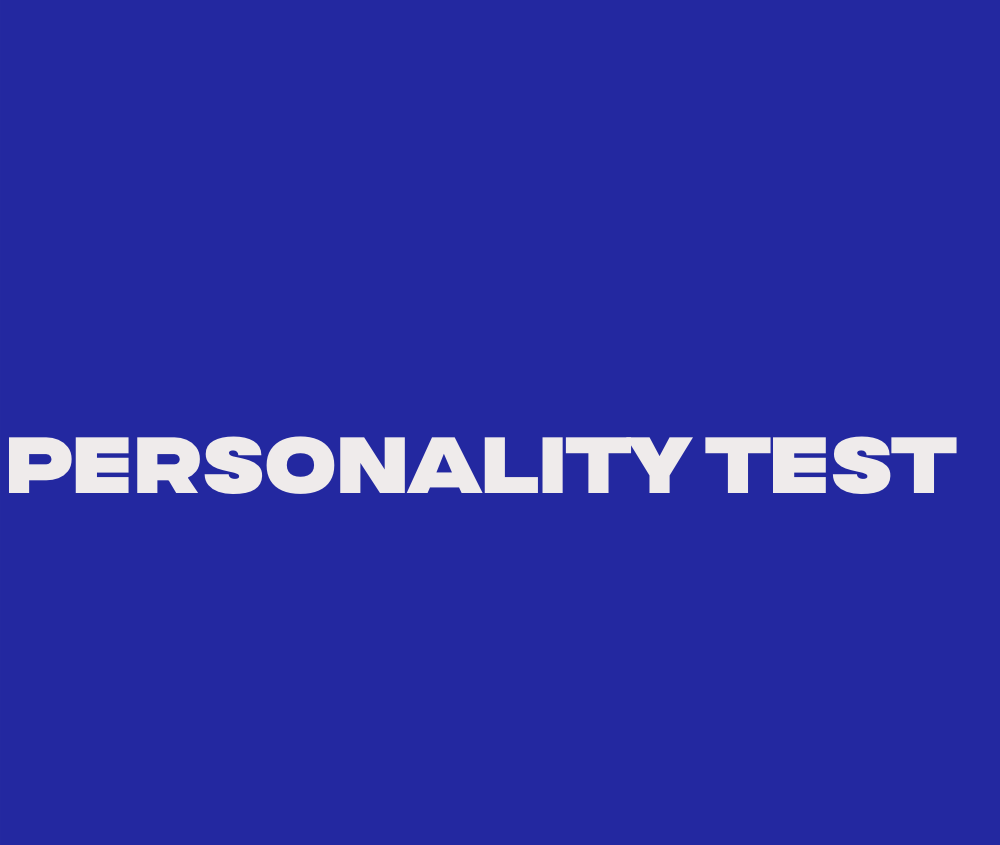Jung Myers-Briggs Relationships
7 Tips for a Successful ISFP-ENTP Relationship
Intrigued to know how an ISFP and an ENTP can thrive together? Discover the seven essential tips for a successful relationship between these contrasting personalities.

In a recent study, a genuine couple, consisting of an ISFP and an ENTP, achieved success by welcoming their contrasting characteristics and diligently working on their relationship. Learning to manage these diverse personality traits can result in a rewarding union.
But what exactly are the seven tips that can help foster a successful ISFP-ENTP relationship? Let's explore these strategies that can enhance compatibility and harmony between these two unique personality types.
Key Takeaways
- Embrace diverse communication styles for mutual understanding and harmony.
- Value and respect each other's unique perspectives and values.
- Align goals and skills for collaboration and trust building.
- Cultivate shared activities, personal growth, and effective conflict resolution.
Understanding Each Other's Communication Styles
When navigating ISFP-ENTP relationships, grasping each other's distinct communication styles is key to fostering understanding and harmony.
ISFPs tend to communicate concretely, focusing on facts and details, while ENTPs lean towards abstract communication, emphasizing interpretations and theories.
In conversations, ISFPs may naturally listen more, allowing ENTPs to take the lead. However, it's vital for ENTPs to create space for ISFPs to express themselves fully to avoid any feelings of being overshadowed.
Effective communication in this dynamic requires a balance where both parties stretch their styles to meet halfway. ISFPs can benefit from engaging in discussions calmly and expressing their thoughts openly.
On the other hand, ENTPs should practice attentive listening and provide the necessary room for ISFPs to communicate effectively.
Embracing Differences in Values

We all bring unique values to a relationship, and it's normal to have differences in what we prioritize. Acknowledging and embracing these variations can lead to a deeper understanding and appreciation of each other.
Value Alignment
In navigating an ISFP-ENTP relationship, embracing the differences in values between partners is essential for fostering understanding and harmony.
- Respect Differences: Acknowledge and appreciate each other's unique values without judgment.
- Communicate Openly: Discuss how your values influence your perspectives and decisions.
- Find Common Ground: Identify shared values to build a stronger connection.
- Support Growth: Encourage each other to explore new perspectives and values for personal development.
Embracing these differences can lead to a more enriching and fulfilling relationship, where mutual respect and understanding pave the way for a deeper connection and lasting love.
Respectful Communication
Navigating the differences in values between ISFPs and ENTPs requires embracing respectful communication that acknowledges and accommodates diverse perspectives.
ISFPs tend to communicate concretely, focusing on facts, while ENTPs lean towards abstract approaches, emphasizing interpretations. Finding a balance between these styles is crucial for a harmonious ISFP-ENTP relationship.
ISFPs should voice their thoughts openly, ensuring their ENTP partners understand their perspectives. Similarly, ENTPs must actively listen to ISFPs, showing respect for their communication preferences.
Finding Common Ground in Daily Routines
Let's explore how ISFPs and ENTPs can connect through shared daily activities, such as enjoying a morning coffee together or taking evening walks.
By establishing routines that cater to both types' preferences, like setting aside time for creativity and adventure while also ensuring stability, we can harmonize our schedules effectively.
Finding common ground in daily routines can be a beautiful way to bond and strengthen the ISFP-ENTP relationship.
Shared Daily Activities
Engaging in shared daily activities plays a crucial role in fostering a strong connection and understanding between ISFPs and ENTPs in a relationship. Here are some ways ISFPs and ENTPs can find common ground in their daily routines:
- Shared Hobbies: Embrace activities like outdoor adventures, art projects, or cooking together to bond over mutual interests.
- Spontaneous Adventures: Explore new places and seek excitement together, creating unforgettable memories that strengthen your relationship.
- Social Events: Enjoy attending gatherings, trying new restaurants, or engaging in group activities to connect with each other and others.
- Creative Projects: Collaborate on DIY projects or themed parties to unleash your creativity and deepen your bond.
Finding a balance between stimulating activities and relaxation time is key to maintaining harmony in your relationship.
Establishing Routines Together
Establishing routines together fosters stability and unity in an ISFP-ENTP relationship. Finding common ground in daily routines is essential for creating a sense of togetherness and deepening the bond between partners. By agreeing on shared activities and rituals, ISFPs and ENTPs can strengthen their connection and enhance understanding. Developing consistent habits not only brings stability but also allows room for spontaneity, catering to both personality types. Here is a table illustrating how establishing routines can benefit ISFP-ENTP relationships:
| Benefits of Establishing Routines Together |
|---|
| 1. Creates stability |
| 2. Fosters togetherness |
| 3. Enhances understanding |
Harmonizing Schedules
Balancing structured routines with spontaneous adventures allows ISFPs and ENTPs to harmonize their schedules effectively, fostering a blend of stability and excitement in their relationship. When finding common ground in daily routines, communication, flexibility, creativity, and adventures play crucial roles:
- Communication: Regularly discussing preferred activities and downtime helps align schedules.
- Flexibility: Being open to adjusting plans and accommodating each other's needs fosters harmony.
- Creativity: Introducing new experiences and ideas into daily routines adds excitement.
- Adventures: Encouraging stepping out of comfort zones and trying new things strengthens the bond.
Resolving Conflicts Respectfully and Constructively

When conflicts arise between ISFP and ENTP partners, it is crucial to prioritize active listening and direct expression of concerns to foster respectful and constructive resolutions. We should practice active listening, avoiding interruptions, and create a safe space for both partners to express their perspectives openly. By expressing concerns calmly and directly, without resorting to passive-aggressiveness, we can ensure that both individuals feel heard and understood. Finding common ground and being willing to compromise is key to reaching solutions that benefit the relationship as a whole. Trust is built through respecting each other's perspectives and emotions during conflict resolution, nurturing a sense of understanding and empathy. It's essential to focus on each other's needs and viewpoints to facilitate a respectful and constructive dialogue.
| Active Listening | Direct Expression of Concerns | Finding Common Ground |
|---|---|---|
| Listen without interruptions | Express concerns openly and calmly | Strive for compromise |
Building Trust Through Openness and Honesty

Openly sharing our thoughts, feelings, and perspectives is fundamental to nurturing trust in ISFP-ENTP relationships. When honesty and openness prevail, the bond between ISFPs and ENTPs deepens, fostering a sense of security and connection. To build trust through openness and honesty, consider the following:
- Transparent Communication: Express thoughts and feelings openly to create an atmosphere of trust and understanding.
- Respectful Honesty: Communicate truthfully while respecting each other's feelings and viewpoints.
- Establishing Boundaries: Clearly define personal needs, desires, and boundaries to promote mutual respect and trust.
- Avoiding Deception: Steer clear of secrecy, lies, and manipulation as these erode trust and hinder relationship growth.
Collaborating Effectively on Shared Goals

Let's work together to identify common goals and interests that will pave the way for effective collaboration in your ISFP-ENTP relationship. By aligning on shared objectives, you can leverage the hands-on approach of the ISFP and the analytical skills of the ENTP to tackle projects as a cohesive team. Open communication and active listening are essential to ensure that both partners are on the same page regarding these shared goals. Encouraging creativity while staying grounded in reality can lead to innovative solutions that drive success in your collaboration.
Embracing the differences in your perspectives and problem-solving styles can actually be a strength in your partnership. These varied viewpoints offer a more comprehensive approach to achieving your common goals. Remember to respect each other's unique ways of thinking and processing information; this diversity can fuel creativity and lead to breakthrough ideas. By valuing each other's perspectives and working together towards shared objectives, you can enhance your collaboration and achieve greater success in your ISFP-ENTP relationship.
Nurturing Individual Growth and Support

To nurture individual growth and support in your ISFP-ENTP relationship, we must prioritize encouraging each other's unique strengths and interests. Here's how you can cultivate personal development and provide the necessary support:
- Encourage Personal Growth: Support each other in pursuing activities that align with your strengths and passions, fostering a sense of fulfillment and accomplishment.
- Provide Emotional Support: Be there for one another during challenging times, offering understanding, empathy, and a safe space to express emotions openly.
- Celebrate Achievements: Acknowledge and celebrate each other's accomplishments and milestones, reinforcing a positive environment that values individual growth.
- Offer Constructive Feedback: Provide constructive criticism and guidance to aid in continuous improvement, helping each other evolve and develop in meaningful ways.
Frequently Asked Questions
Who Is the Best Girlfriend for Entp?
We think the best girlfriend for an ENTP is someone who appreciates their spontaneity, intellect, and zest for life. Understanding, supportive, and open-minded partners who can engage in deep conversations tend to resonate with ENTPs.
Who Is the Perfect Partner for Entp?
We believe the perfect partner for an ENTP values intellectual discussions, challenges them, and appreciates their innovative approach. It's crucial to balance intellectual stimulation with emotional support to thrive in a relationship with an ENTP.
Who Falls in Love With Entp?
We fall in love with ENTPs for their magnetic personalities and sharp minds. Their ability to stimulate us intellectually and engage in meaningful conversations is truly captivating. Shared interests and a sense of adventure deepen our connection.
What Is the Best Relationship for Isfp?
For us, the best relationship for ISFPs involves shared passions, emotional depth, and a blend of tradition and adventure. We value stability but crave new experiences. Finding a partner who balances both is key.
Conclusion
In conclusion, by understanding, embracing, and supporting each other, ISFPs and ENTPs can cultivate a successful and fulfilling relationship. Finding common ground, resolving conflicts respectfully, and nurturing individual growth are essential for building a strong bond.
Trust, communication, and a willingness to adapt together are key to navigating the complexities of this dynamic. With open hearts and minds, ISFPs and ENTPs can create a harmonious partnership filled with love, growth, and mutual understanding.
Augustus is the visionary leader and Editor-in-Chief of Personality-Test.net. With an unwavering commitment to quality and authenticity, he oversees all content, ensuring it enlightens and empowers our audience. Augustus believes deeply in the transformative power of self-awareness and is dedicated to making Personality-Test.net a beacon for those on a journey to understand themselves better.
Jung Myers-Briggs Relationships
Understanding the INTP-ESFP Relationship Dynamics
Dive into the enigmatic dance between INTPs and ESFPs to discover the secrets behind their intriguing relationship dynamics.

When delving into the complex dynamic between INTPs and ESFPs, we discover an intriguing blend of opposing traits that can either clash or complement each other.
The enigmatic dance of introverted thinking and extraverted feeling within this dynamic duo sparks curiosity about how they navigate the realms of decision-making, communication, and conflict resolution.
As we delve into the depths of their interactions, we begin to unravel the secrets to unlocking the full potential of this intriguing relationship.
Key Takeaways
- Effective communication styles vary between INTPs and ESFPs.
- Conflict resolution requires a blend of empathy and logic for harmony.
- Trust thrives on open expression and understanding diverse perspectives.
- Collaboration merges analytical and empathetic strengths for innovative outcomes.
Communication Styles and Preferences
In understanding the dynamics of an INTP-ESFP relationship, it's crucial to recognize the distinct communication styles and preferences each personality type brings to the table. ESFPs tend to communicate concretely, drawing from real-life experiences and examples to express themselves. On the other hand, INTPs lean towards abstract and theoretical communication, focusing more on ideas and concepts. When engaging in conversation, INTPs may need to practice active listening when interacting with the more expressive ESFPs. In contrast, ESFPs can enhance communication by being more direct and concise when conveying their thoughts to the analytical INTPs.
To foster effective interaction, both parties must strive to understand and respect each other's different communication styles. By acknowledging the differences in how they approach conversations – whether it be abstract versus concrete or theoretical versus experiential – they can navigate discussions more harmoniously. Respect for these distinctions lays a solid foundation for meaningful and fruitful communication in the INTP-ESFP relationship.
Conflict Resolution Strategies

Understanding how conflict resolution strategies play a crucial role in an INTP-ESFP relationship involves recognizing the importance of empathy and perspective-taking between the two personality types. When conflicts arise, it's essential for both INTPs and ESFPs to acknowledge each other's emotional responses and engage in logical reasoning to find common ground. To navigate disagreements effectively, patience, open-mindedness, and clear communication are key elements that pave the way for mutual understanding and resolution.
In an INTP-ESFP dynamic, the following strategies can be beneficial:
- Embrace Empathy: Both parties should strive to understand and validate each other's emotions to foster a more empathetic connection.
- Value Diverse Perspectives: Appreciating the different viewpoints of an INTP and an ESFP can lead to more comprehensive problem-solving approaches.
- Prioritize Effective Communication: Clear and respectful communication is fundamental for addressing conflicts and reaching mutually satisfying resolutions.
Trust Building Techniques
To cultivate trust in an INTP-ESFP relationship, recognizing and embracing each other's unique qualities is essential for fostering a strong bond based on understanding and respect. Understanding the different personality types of INTP and ESFP is crucial in building trust.
Effective communication and acceptance play a vital role in establishing trust between these two types. INTPs can work on building trust by being more open about their thoughts and feelings, while ESFPs can express themselves logically to bridge any communication gaps.
Giving space to the introspective nature of INTPs and trying to relate emotionally to the expressive ESFPs can significantly strengthen trust. Trust is further enhanced through mutual understanding and respect for each other's emotions and perspectives.
Collaboration and Teamwork Approaches

Balancing logical problem-solving skills with emotional spontaneity, INTPs and ESFPs complement each other effectively in collaborative efforts. When it comes to collaboration and teamwork approaches, the dynamic between an INTP and an ESFP can lead to innovative and successful outcomes. Here are some key points to consider:
- Mutual Learning: INTPs can teach ESFPs analytical thinking and strategic planning, while ESFPs help INTPs empathize more with others. This exchange of knowledge and skills enhances the capabilities of both personalities.
- Understanding Perspectives: The differences in thinking styles between INTPs and ESFPs provide a unique advantage in approaching tasks from both emotional and logical angles. This diversity of perspectives often leads to more comprehensive and well-rounded solutions.
- Innovative Solutions: Through mutual learning and understanding, INTPs and ESFPs can leverage their emotional and logical strengths to create innovative approaches to problem-solving. Their collaborative efforts often result in creative solutions that are both effective and original.
Coping With Challenges and Changes
Navigating challenges and changes in the relationship between an INTP and an ESFP requires effective communication and mutual support. Understanding each other's stress triggers is crucial; being self-aware and providing support can effectively manage stress.
Both types' adaptability plays a significant role in navigating the ups and downs of the relationship. Acknowledging and respecting the differences between an INTP and an ESFP is essential for building mutual understanding.
Collaboration is key in coping with challenges; working together can enhance resilience and make the relationship stronger. By fostering a supportive environment and being open to each other's needs, the couple can tackle obstacles with a united front.
Can the INTP-ENFP Relationship Dynamics be Similar to the INTP-ESFP Relationship Dynamics?
The dynamics of an INTP-ENFP relationship and an INTP-ESFP relationship can differ significantly. While both relationships involve an intuitive-thinking Perceiver (INTP) and a feeling Perceiver (ENFP or ESFP), their dynamic is uniquely shaped by the varying traits and preferences of each individual. Understanding these differences is crucial for fostering successful intpenfp relationship dynamics.
Frequently Asked Questions
Are INTP and ESFP Compatible?
We believe that INTPs and ESFPs can be compatible through understanding, communication, and compromise. Our differences can create a dynamic connection, challenging yet rewarding. With effort and empathy, we can find a unique balance in our relationship.
What Is the Most Compatible Relationship for Esfp?
We believe ESFPs thrive best with ISTJ, ISFJ, and ENFP types, seeking partners who balance their spontaneity with stability. They value emotional fulfillment, shared adventures, creativity, and social interactions. Finding harmony in these aspects leads to rewarding relationships.
What Personality Type Clashes With Intp?
Other personality types that clash with INTPs are ESFJs, INFPs, ISTJs, and ENTJs. These clashes arise from differences in communication, decision-making, emotional sensitivity, structure preferences, and assertiveness. Understanding these dynamics can foster better relationships.
What Is the Best Relationship Type for Intp?
In relationships, we seek partners who respect our intellect and embrace our innovative ideas. The best match for an INTP values deep discussions, analytical thinking, and supports our need for intellectual growth and introspection.
Conclusion
In conclusion, navigating the dynamics of an INTP-ESFP relationship requires patience, understanding, and a willingness to embrace differences.
By actively communicating, resolving conflicts peacefully, and building trust consistently, this unique partnership can flourish and grow.
Remember, no relationship is perfect, but with a sprinkle of effort and a dash of empathy, the bond between an INTP and ESFP can reach meteoric heights of mutual respect and harmony.
Augustus is the visionary leader and Editor-in-Chief of Personality-Test.net. With an unwavering commitment to quality and authenticity, he oversees all content, ensuring it enlightens and empowers our audience. Augustus believes deeply in the transformative power of self-awareness and is dedicated to making Personality-Test.net a beacon for those on a journey to understand themselves better.
Jung Myers-Briggs Relationships
10 Ways an INFP-ENFP Relationship Can Thrive
Foster a deeper connection between INFPs and ENFPs by exploring 10 essential ways their relationship can thrive – discover the secrets to lasting harmony and growth.

In the complex relationship between an INFP and an ENFP, appreciating and accepting each other’s distinct viewpoints lays the groundwork for a satisfying bond.
However, there is more to uncover beyond this initial step. By exploring the nuances of effective communication, trust-building, and collaborative problem-solving, a deeper level of harmony and growth awaits.
Let's unravel the intricacies of how these personality types can navigate the complexities of a relationship together.
Key Takeaways
- Balance introspection and external engagement for mutual understanding and growth.
- Prioritize active listening and expressive communication to build trust and emotional connection.
- Engage in deep conversations, share vulnerabilities, and support each other in times of need.
- Practice empathy, understanding, and constructive conflict resolution to sustain intimacy and foster a thriving relationship.
Embracing Differences and Understanding
Embracing our unique communication styles as an INFP and an ENFP lays the foundation for deeper understanding and connection in our relationship. As an INFP, I appreciate the introspective and reflective approach to communication, often delving into emotions and deeper meanings. On the other hand, as an ENFP, my partner brings vibrant energy and a zest for exploration to our interactions, sparking creativity and excitement. Understanding each other's need for alone time is crucial in honoring our individual processes. While I recharge through solitary moments, my ENFP partner thrives in social settings, balancing our dynamics beautifully.
Appreciating the introverted nature of an INFP alongside the outgoing energy of an ENFP creates a harmonious blend of introspection and external engagement. This balance allows us to support each other in times of need while also celebrating our unique strengths. Recognizing the emotional depth of an INFP and the enthusiasm of an ENFP further enriches our connection, fostering a sense of empathy and care within our relationship. Valuing our diverse perspectives and approaches brings a wealth of insights and learning opportunities, strengthening the bond between us as we navigate life together.
Cultivating Effective Communication

To foster a deeper connection in an INFP-ENFP relationship, prioritizing effective communication is key for understanding each other's perspectives and nurturing emotional intimacy. In our journey together, we've found that open and honest conversations lay the groundwork for a strong and lasting bond. Actively listening and empathizing with one another's thoughts and emotions create a safe space for vulnerability and connection.
- Active Listening: Engaging attentively and receptively to understand and validate each other's viewpoints.
- Expressive Communication: Utilizing non-verbal cues and expressive language to convey emotions and thoughts effectively.
- Respectful Dialogue: Fostering clear and respectful communication enhances trust and builds a stronger foundation for our relationship.
Nurturing Trust and Loyalty
We understand that building trust and loyalty in an INFP-ENFP relationship is crucial for its growth and stability.
By focusing on building emotional connection, establishing open communication, and demonstrating mutual support, we can strengthen the bond between partners.
Prioritizing honesty, reliability, and shared values will further nurture a sense of trust and loyalty in the relationship.
Building Emotional Connection
Building emotional connection in an INFP-ENFP relationship involves fostering trust and loyalty through open, honest communication and consistent support. To deepen this bond, consider:
- Engaging in deep conversations: Take the time to explore each other's thoughts and feelings, creating a space for vulnerability and understanding.
- Sharing vulnerabilities: Opening up about your fears and insecurities can strengthen the emotional connection and build a sense of trust.
- Being emotionally available: Show that you're present and attentive to your partner's needs, demonstrating your commitment to the relationship.
Establishing Open Communication
Establishing open communication in an INFP-ENFP relationship is foundational for nurturing trust and loyalty between partners. Honest conversations, where thoughts and feelings are shared openly, create a strong foundation of understanding. By actively listening and empathizing, partners can deepen their connection and strengthen their bonds. Setting clear boundaries and expectations is crucial in fostering a healthy dynamic built on trust. This open line of communication allows for transparency, vulnerability, and a safe space for both individuals to express themselves authentically. Embracing honest dialogue promotes a sense of security and loyalty within the relationship, ensuring that both partners feel heard, valued, and understood.
| Benefits of Open Communication | |
|---|---|
| Fosters Trust | Builds Loyalty |
| Encourages Understanding | Sets Healthy Boundaries |
Demonstrating Mutual Support
Nurturing trust and loyalty in an INFP-ENFP relationship involves actively demonstrating mutual support through open communication and genuine empathy. To build a strong foundation based on trust and loyalty, it's essential to:
- Communicate Honestly: Share your thoughts and feelings openly, fostering a sense of transparency and understanding.
- Show Respect and Understanding: Acknowledge each other's perspectives and needs, creating a supportive environment where both partners feel valued.
- Support Each Other's Growth: Stand by your partner through thick and thin, celebrating successes together and working collaboratively to overcome obstacles.
Collaborating and Working Together

Collaborating together in a work environment presents an opportunity for INFPs and ENFPs to enhance creativity and productivity through the synergy of their unique strengths. When INFPs and ENFPs come together, their combined creativity can spark innovative ideas and fresh perspectives. By sharing thoughts and engaging in brainstorming sessions, these personality types can leverage their introspective nature and enthusiastic approach to create well-rounded projects. The collaboration between an INFP's deep insights and an ENFP's vibrant energy often leads to successful outcomes.
Moreover, recognizing and utilizing each other's strengths in communication and problem-solving can further enrich the collaborative process. This mutual respect for individual work styles and approaches is key to fostering a harmonious working relationship between INFPs and ENFPs. Embracing the differences in how each type approaches tasks can result in a dynamic and effective partnership that thrives on diversity and mutual understanding. By working together, INFPs and ENFPs can achieve remarkable results that showcase the power of collaboration.
Managing Stress and Emotions

To effectively navigate stress and emotions in the relationship, we prioritize mindfulness and engage in regular activities that promote relaxation and emotional well-being. This helps us maintain a sense of emotional balance and connection.
Here are some practical ways we manage stress and nurture our emotional well-being:
- Practice mindfulness: Taking time to ground ourselves in the present moment can help alleviate stress and anxiety.
- Engage in hobbies: Finding activities that bring us joy and relaxation can be a great way to unwind and recharge emotionally.
- Communicate openly: Creating a safe space for open communication allows us to address any concerns or emotions before they escalate.
Motivating and Encouraging Each Other

In our relationship, we find motivation and encouragement through celebrating each other's creativity and passion. As an ENFP, I appreciate how my INFP partner's unique perspectives and creative outlook inspire me to think outside the box. By encouraging their creativity and acknowledging the beauty in their ideas, I can motivate them to continue pursuing their passions.
On the other hand, as an INFP, I'm uplifted by my ENFP partner's enthusiasm and zest for life. Their ability to see the potential in new ideas and projects motivates me to step out of my comfort zone and explore new possibilities for personal growth. Together, we push each other to strive for self-improvement and celebrate our achievements along the way.
Resolving Conflict With Empathy

When conflicts arise in our relationships, it's crucial to practice active listening and empathy to truly grasp each other's perspectives.
By encouraging open and honest communication, we can effectively address the underlying issues and feelings causing the conflict.
Let's focus on expressing our emotions calmly, understanding each other's viewpoints, and working together to find solutions that benefit both partners.
Active Listening Skills
Understanding each other's perspectives through active listening is the cornerstone of resolving conflicts with empathy in an INFP-ENFP relationship. When engaging in active listening, remember to:
- Focus on the speaker without interruptions, truly hearing their words and emotions.
- Show understanding through nonverbal cues like eye contact and nodding.
- Reflect back what you've heard to ensure accuracy and demonstrate your commitment to empathetic communication.
Understanding Perspectives
Navigating conflicts in an INFP-ENFP relationship involves embracing differing perspectives with empathy and active listening as key tools for resolution. Understanding perspectives requires acknowledging and validating each other's emotions and viewpoints. This mutual empathy is essential for conflict resolution, as it helps foster a deeper emotional connection and mutual understanding between partners. By empathizing with one another, both INFPs and ENFPs can find common ground, leading to harmony and strengthening their bond. The table below highlights the importance of empathy in resolving conflicts and building a strong foundation for a thriving relationship.
| Key Points | Importance in INFP-ENFP Relationship |
|---|---|
| Empathy | Essential for understanding each other's emotions |
| Conflict Resolution | Helps in finding solutions and compromises |
| Emotional Connection | Deepens the bond between partners |
| Mutual Understanding | Fosters a sense of unity and closeness |
| Harmony | Promotes a peaceful and loving relationship |
Expressing Emotions Calmly
To effectively resolve conflicts with empathy in an INFP-ENFP relationship, it's crucial to learn how to express emotions calmly and constructively. When navigating emotional situations, it's essential to:
- Practice Active Listening: Engage fully in understanding your partner's emotions and perspective without judgment.
- Exercise Patience: Allow each other the time needed to express feelings and work through them together.
- Focus on Solutions: Shift the focus from blame to finding solutions and compromises that honor both partners' emotions and needs.
Sustaining Intimacy and Passion
Sustaining intimacy and passion in an INFP-ENFP relationship involves prioritizing emotional connection and shared values to nurture a deep and meaningful bond. For an INFP and an ENFP, intimacy blossoms when they openly communicate their innermost thoughts and feelings, creating a safe space for vulnerability and authenticity.
By sharing their values and beliefs, they strengthen their emotional connection and build a foundation of trust. To keep the flame of passion alive, engaging in creative activities and embarking on new adventures together is vital. Expressing appreciation and affection regularly reminds each other of their love and keeps the relationship dynamic.
Embracing each other's uniqueness and quirks deepens the bond and fuels the passion between them. By actively investing in their emotional connection and aligning their values, an INFP-ENFP couple can cultivate enduring intimacy and lasting passion in their relationship.
Adapting to Change and Challenges

As we journey through the ups and downs of a relationship, embracing growth together and cultivating resilience in adversity are essential.
Challenges and changes can be opportunities for us to evolve both individually and as a couple, strengthening our bond.
Embracing Growth Together
How can we as a couple effectively adapt to the changes and challenges that come our way, fostering growth and understanding in our relationship? Embracing change together is key to our personal growth and the development of our bond. Here are some ways we can navigate this journey:
- Staying Open-Minded: Let's approach new experiences with curiosity and a willingness to learn from each other.
- Communicating Freely: Sharing our thoughts and feelings openly fosters mutual support and deepens our connection.
- Being Adaptable: Flexibility in the face of challenges allows us to grow together and maintain harmony in our relationship.
Resilience in Adversity
Navigating through challenges together as a couple strengthens our resilience and deepens the bond between us, allowing us to adapt and grow in the face of adversity. When facing obstacles, our ability to support each other through tough times not only builds resilience but also fosters personal growth. The shared experiences of overcoming challenges create a deeper connection, solidifying our bond as an INFP-ENFP pair. Here is a practical table to help visualize how we can approach adversity as a team:
| Approach | Effect |
|---|---|
| Embracing challenges | Opportunities for growth |
| Supporting each other | Strengthened bond |
| Learning from adversity | Personal growth |
| Communicating openly | Enhanced connection |
| Celebrating victories | Increased resilience |
Prioritizing Fun and Shared Experiences

To cultivate a thriving relationship between an INFP and an ENFP, prioritizing fun and shared experiences is key. Planning exciting adventures and activities together can deepen the bond between us. Shared experiences create lasting memories, strengthening our emotional connection.
Here are some ways to prioritize fun and shared experiences in our relationship:
- Embark on spontaneous adventures: Seek out new experiences together, whether it's trying a new cuisine or taking a road trip to a nearby town.
- Engage in playful activities: Embrace playfulness in our daily lives, from silly games to inside jokes that only we understand.
- Make time for shared hobbies: Discover and explore common interests, such as painting, hiking, or attending music concerts.
What are the similarities and differences between an ESFP-ENFP relationship and an INFP-ENFP relationship?
When it comes to navigating an ESFP-ENFP relationship and an INFP-ENFP relationship, there are both similarities and differences to consider. Both pairings can benefit from learning how to navigate ESFP-ENFP relationship by understanding each other’s communication styles and emotional needs. However, the INFP-ENFP relationship may have a stronger focus on emotional depth and introspection.
Frequently Asked Questions
Do ENFP and INFP Make a Good Couple?
Absolutely, ENFPs and INFPs make a fantastic couple! Our shared values and emotional depth create a strong foundation. We bring energy and stability to the relationship, fostering a deep bond that thrives on understanding and mutual support.
What Attracts ENFP to Infp?
We adore the INFP's genuine emotions and deep thoughts which captivate us. Their creativity and idealism are like a magnet. The emotional stability and understanding they offer draw us in, creating a profound connection.
What Makes an ENFP Unhappy in a Relationship?
We feel unhappy in a relationship if our need for spontaneity and excitement isn't met. Lack of emotional depth and stifling our creativity can leave us dissatisfied. Support for our dreams and shared values are vital.
Who Is the Best Love Interest for Enfp?
We find that the best love interest for ENFPs is someone who appreciates their spontaneity, supports their personal growth, engages in deep conversations, respects their independence, and shares their zest for life. Compatibility matters.
Conclusion
In conclusion, embracing our differences and understanding each other's needs is key to a thriving INFP-ENFP relationship. By cultivating effective communication, nurturing trust, and collaborating together, we can build a strong foundation of love and support.
Remember, love conquers all, even the quirkiest of quirks! So, let's continue to grow, adapt, and celebrate the unique connection we share.
Here's to a love that's as infinite as the stars in the sky!
Augustus is the visionary leader and Editor-in-Chief of Personality-Test.net. With an unwavering commitment to quality and authenticity, he oversees all content, ensuring it enlightens and empowers our audience. Augustus believes deeply in the transformative power of self-awareness and is dedicated to making Personality-Test.net a beacon for those on a journey to understand themselves better.
Jung Myers-Briggs Relationships
Understanding the INFJ-INTP Relationship Dynamics
Nurturing sunflowers and steadfast oak trees – discover the intricate dance of emotions and intellect in the INFJ-INTP relationship dynamics.

In a garden, the caring INFJ is akin to a nurturing sunflower, gracefully swaying in the breeze, while the INTP stands strong like a steadfast oak tree, grounded in logical reasoning.
Together, these two personality types create a unique blend of emotional depth and intellectual prowess that can lead to a harmonious partnership. However, navigating the complexities of their differences requires patience, understanding, and a willingness to explore new perspectives.
As we delve deeper into the intricacies of the INFJ-INTP relationship dynamics, we uncover a tapestry of growth, challenges, and ultimately, a bond worth unraveling.
Key Takeaways
- Mutual growth through challenging perspectives and embracing differences
- Communication balance fosters intimacy and understanding
- Shared interests strengthen the bond in INFJ-INTP relationships
- Adaptation in communication styles shows willingness to nurture the relationship
Compatibility Between INFJ and INTP
In exploring the compatibility between INFJs and INTPs, it becomes evident that their yin-and-yang dynamic forms a foundation of mutual understanding and growth in their relationship. INFJs, with their deep emotional awareness, help INTPs navigate the complexities of feelings, encouraging them to consider emotions in decision-making and interactions. Simultaneously, INTPs offer valuable perspectives on logic and critical thinking, aiding INFJs in balancing their idealism with practicality.
This mutual learning process fosters a harmonious bond, where each partner complements the other's strengths and weaknesses. Moreover, both INFJs and INTPs share a common value for personal space, respecting each other's need for independence and solitude. This mutual respect not only enhances their connection but also allows them to thrive individually within the relationship.
The blend of Extraverted Feeling and Introverted Thinking functions in INFJ-INTP relationships creates a rich tapestry of understanding, empathy, and growth, making them a truly harmonious and complementary pair.
Communication Styles of INFJ and INTP

Considering the distinct communication styles of INFJs and INTPs, understanding and adapting to each other's preferred modes of expression play a crucial role in fostering effective and harmonious interactions within the relationship. INFJs tend to communicate emotionally and intuitively, focusing on personal values and empathy, while INTPs communicate logically and analytically, emphasizing facts, ideas, and problem-solving.
To bridge the gap between emotional and logical approaches, both INFJs and INTPs may need to adapt their communication styles. INFJs value deep, meaningful conversations that explore emotions and connections, whereas INTPs prefer discussions revolving around concepts, theories, and intellectual pursuits. To navigate these differences successfully, it's essential for both partners to show empathy, be open to adapting, and find a balance between emotional depth and logical reasoning.
In doing so, they can create a communication style that allows for rich, understanding dialogues and effective problem-solving within the relationship.
Conflict Resolution in INFJ-INTP Relationships
Navigating conflicts in INFJ-INTP relationships requires a delicate balance between acknowledging emotional needs and seeking logical solutions. Communication differences between the two personality types can often lead to misunderstandings and disagreements. For INFJs, it's essential to feel validated in their emotions, while INTPs may naturally gravitate towards finding logical answers. Resolving conflicts in these relationships involves understanding each other's unique perspectives and finding compromises that honor both emotional needs and logical solutions.
In conflict resolution, trust-building plays a significant role in strengthening the bond between INFJs and INTPs. By openly communicating and actively listening to each other, they can work towards finding common ground and mutually beneficial outcomes. Validating each other's emotions and respecting differing approaches to problem-solving can help foster a sense of unity and closeness. Ultimately, through empathy, compromise, and a willingness to meet halfway, INFJ-INTP relationships can grow stronger as they navigate conflicts together.
Mutual Growth Opportunities

Exploring mutual growth opportunities in INFJ-INTP relationships reveals the dynamic exchange of emotional intelligence and logical reasoning that fosters personal and intellectual development. In these relationships, we have the chance to:
- Challenge Perspectives: By sharing our unique viewpoints, we encourage each other to see things from different angles, leading to personal growth.
- Enhance Communication: Through open and honest discussions, we improve our communication skills and deepen our connection, fostering relationship growth.
- Embrace Differences: Celebrating the diversity in our personalities allows us to learn from each other's strengths and weaknesses, promoting mutual growth.
- Practice Compromise: Finding middle ground in disagreements teaches us the art of compromise, nurturing both personal and relationship growth.
- Utilize Strengths: Leveraging our individual strengths and supporting each other in our weaknesses creates a harmonious balance that fosters growth on multiple levels.
In INFJ-INTP relationships, these opportunities for mutual growth serve as pillars for a thriving and evolving connection.
Nurturing a Thriving Relationship
To nurture a thriving INFJ-INTP relationship, understanding and embracing each other's differences forms the foundation for building a strong and lasting bond. Communication plays a vital role in fostering intimacy between INTPs and INFJs. By openly expressing emotions and thoughts, both partners create a safe space for vulnerability and connection.
Finding shared interests not only strengthens the bond but also provides opportunities for growth and exploration together. Honesty is key in maintaining trust and transparency, while active listening ensures that both individuals feel heard and understood.
Adjusting communication styles to meet each other's needs demonstrates a willingness to adapt and prioritize the relationship's success. Supporting personal growth and encouraging each other's aspirations further solidifies the foundation of the partnership. By actively engaging in these practices, INTPs and INFJs can nurture a relationship that thrives on mutual respect, understanding, and love.
– How Do the Relationship Dynamics Differ Between INFJ-INTP and INFJ-INTJ Couples?
INFJ-INTP pairs often experience a dance of intellectual exploration, where emotions and logic intertwine. In contrast, infjintj relationship dynamics understanding requires navigating the INTJ’s structured mindset with the INFJ’s emotional depth, creating a powerful, yet sometimes challenging, synergy of strategic thought and empathic insight.
Frequently Asked Questions
Are INTP and INFJ Compatible in a Relationship?
Yes, INTPs and INFJs can be compatible in a relationship. Understanding each other's unique perspectives, communication styles, and supporting individual growth are crucial. Mutual respect, shared values, and embracing differences foster a deep connection.
Why Is INFJ Attracted to Intp?
We're drawn to INTPs for their intellectual depth, analytical minds, and creative problem-solving skills. Their independent nature and logical approach resonate with our need for meaningful connections and mental stimulation. It's a unique and complementary attraction.
What Is the Relationship Dynamic of Intp?
We value deep connections, driven by analysis and innovation. Our dynamic involves intellectual exploration, problem-solving, and unique perspectives. We prioritize understanding and clarity, fostering growth and creativity within our relationships, making them rich and fulfilling.
What Personality Type Clashes With Intp?
Oh, the irony! INTPs clash with ESFJs due to opposite preferences in social harmony and independent thinking. Misunderstandings arise from communication differences. Our logical reasoning meets their emotional expression, creating tension in relationships.
Conclusion
As we navigate the intricate dance of an INTP-INFJ relationship, we uncover layers of compatibility, communication styles, conflict resolution, and growth opportunities. Each step we take together reveals new depths to explore and understand.
Like a captivating mystery waiting to be unraveled, our journey as a pair of unique individuals intertwined in love and growth continues to unfold. Let's embrace the challenges and triumphs ahead, knowing that the bond we share is worth every moment of discovery.
Augustus is the visionary leader and Editor-in-Chief of Personality-Test.net. With an unwavering commitment to quality and authenticity, he oversees all content, ensuring it enlightens and empowers our audience. Augustus believes deeply in the transformative power of self-awareness and is dedicated to making Personality-Test.net a beacon for those on a journey to understand themselves better.
-

 Self-Understanding3 months ago
Self-Understanding3 months agoUnderstanding DMCA Protections & Compliance
-

 Relationship Dynamics3 months ago
Relationship Dynamics3 months agoCan a Man Truly Love His Side Chick
-

 Enneagram of Personality1 week ago
Enneagram of Personality1 week agoEnneagram Test: Printable Version for Easy Self-Discovery
-

 Personality Exploration3 weeks ago
Personality Exploration3 weeks agoDiscover Your Traits with Atomic Habits Personality Test
-

 Personality Exploration3 months ago
Personality Exploration3 months agoDOPE Personality Test Explained: Traits & Types
-

 Personality Exploration2 weeks ago
Personality Exploration2 weeks agoAlpha Beta Omega Personality Test Explained
-

 Personality Exploration3 months ago
Personality Exploration3 months agoAlpha Beta Omega Sigma Female Personality Quiz
-

 Self-Understanding2 months ago
Self-Understanding2 months agoDiscover Your Traits with Our Personality Test
















